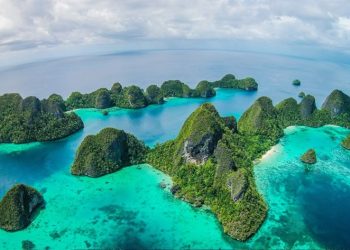Jakarta, Indonesia Sentinel — Indonesia, one of the world’s most biodiverse nations, is home to a vast array of endemic species found nowhere else on Earth. However, many of these unique animals are now teetering on the brink of extinction due to a combination of habitat destruction, poaching, and climate change.
According to the Indonesian Dictionary, “endemic” refers to species that are native to a specific geographic area and not found naturally elsewhere. These creatures, which include some of the nation’s most iconic wildlife, are in urgent need of conservation efforts.
Here are some of Indonesia most endangered endemic species:
1. Javan Hawk-Eagle
Once soaring through the forests of Java, particularly around Mount Slamet and Baluran, the majestic Javan Hawk-Eagle is now critically endangered, with an estimated population of just 250 individuals. Due to severe habitat loss and illegal hunting, the International Union for Conservation of Nature (IUCN) has classified this species as critically endangered.
2. Javan and Sumatran Rhino
The Javan Rhino, found exclusively in Indonesia, is now confined to Ujung Kulon National Park (TNUK) in Banten. According to a Mongabay report, as of April 2024, only 82 Javan Rhinos remain, making it one of the rarest large mammals on Earth. The IUCN has also placed the Javan Rhino on its critically endangered list.
Similarly, the Sumatran Rhino faces a dire future, with fewer than 80 individuals left, scattered in fragmented habitats across Sumatra and Borneo. The Sumatran Rhino Sanctuary in Way Kambas National Park, located in Lampung province, focuses on breeding and scientific research to boost the population of this critically endangered species.
3. Sumatran Orangutan
Once widespread across Sumatra and even reaching parts of Java, the Sumatran Orangutan is now limited to the northern regions of Sumatra, primarily in North Sumatra and Aceh provinces.
According to Mongabay, the current population is estimated at around 13,710 individuals, covering a habitat area of 20,533 square kilometers. The largest concentration is found in the Leuser Ecosystem, divided into two metapopulations: West Leuser with 5,920 individuals and East Leuser with 780 individual remains.
Long Declared Extinct, Recent Discovery Reveals Presence of Javan Tiger
4. Sumatran Tiger
The Sumatran Tiger is the last remaining tiger subspecies in Indonesia, as its relatives, the Bali Tiger and Javan Tiger, have long been extinct. During a 2024 Global Tiger Day event in Bengkulu, the head of Kerinci Seblat National Park, Khaidir, revealed that the population of Sumatran Tigers has dwindled to just 130-140 individuals. This top predator is under severe threat due to increased poaching activities in Kerinci Seblat National Park.
5. Sumatran Elephant
The Sumatran Elephant is classified as critically endangered by the IUCN and is listed under Appendix I of the Convention on International Trade in Endangered Species (CITES). According to Indonesia’s Ministry of Environment and Forestry, only 1,800 to 2,800 of these elephants are left in the wild. The decline is driven by habitat conversion for agriculture, illegal poaching, and escalating human-elephant conflicts. Out of 56 remaining habitats, 13 are already declared extinct, and 11 are critically at risk.
Urgent Need for Conservation
The plight of Indonesia’s endemic wildlife highlights the urgent need for comprehensive conservation efforts. Government agencies, NGOs, and local communities must work together to protect these species from further decline. While conservation areas and sanctuaries are crucial, addressing underlying issues like deforestation, illegal hunting, and climate change is essential to ensure these unique animals can survive for future generations.
As the world grapples with biodiversity loss, the survival of Indonesia endemic species serves as a critical reminder of the delicate balance between nature and human activity. Without immediate and sustained intervention, many of these iconic animals may vanish forever, taking with them a part of Indonesia’s rich natural heritage.
(Raidi/Agung)

























